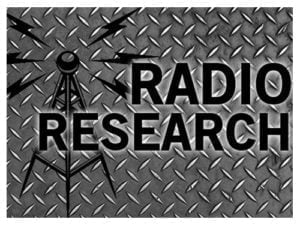During the past few months a couple of publications have produced an annual “Best Of” the sports radio industry. The lists have created a stir due to their subjectivity and lost in the process was the purpose of why they were created – to showcase the people and stations who perform best in the sports format.
While the results have been met with mixed reviews, it’s led to people asking “do people in the industry vote and what do they base their decisions on“?
Having done research on this subject, I learned that the results were done independently. In a couple of instances feedback was requested from a few industry people but the final determinations were made by the publications.
As a former programmer myself, I was curious why industry people who are tasked with making hiring decisions, coaching talent and generating ratings weren’t more involved in the process. I also wondered why ratings performance wasn’t a heavier factor and what hosts and shows in smaller markets could do to increase their standing if their geography didn’t change during the course of the next 12 months.
 I was openly critical of the Talkers Top 100 for Sports Radio because although I enjoyed the piece, the results rarely change from year to year. It felt like the list was built off of reputation rather than actual performance. If a show is in the top 5 in their market one year, but falls to 15th and is getting beat by a local competitor a year later, how can they be in the same spot and ahead of a show that beats them?
I was openly critical of the Talkers Top 100 for Sports Radio because although I enjoyed the piece, the results rarely change from year to year. It felt like the list was built off of reputation rather than actual performance. If a show is in the top 5 in their market one year, but falls to 15th and is getting beat by a local competitor a year later, how can they be in the same spot and ahead of a show that beats them?
That column generated a lot of feedback and many agreed with my position but some did not. A few people then asked me to lead the charge to get a better read on how the best minds in the format viewed the nation’s best sports talk programs.
At first I was reluctant to do it because I recognized how impossible it is to create the perfect list. I also saw the job as being thankless and one which puts me in the line of fire for simply trying to provide some positive recognition to those who perform each day.
But then I realized how much of a hypocrite I was. How could I sit there and be critical of another group’s results if I wasn’t willing to take the same risk myself?
So after wrestling with the decision for a few weeks, I arrived at the point where I was ready to take a stab at it.
 However, rather than make it a one-man’s opinion column, I wanted it to be reflective of how the best decision makers in the format feel. To do that, I assembled a panel of more than thirty of the sports radio format’s top executives from ESPN, Fox, Sirius, CBS, iHeart, Cumulus, Entercom, Greater Media, and a few other groups.
However, rather than make it a one-man’s opinion column, I wanted it to be reflective of how the best decision makers in the format feel. To do that, I assembled a panel of more than thirty of the sports radio format’s top executives from ESPN, Fox, Sirius, CBS, iHeart, Cumulus, Entercom, Greater Media, and a few other groups.
The reason why this was important is because I didn’t want any company bias or geographical influence determining the final results. I sought out people who had experience managing in multiple markets and who had run stations in major markets for a lengthy period of time and had been through the rigors of scouting and hiring talent.
In exchange for providing their selections, I promised anonymity. If you want candid responses and strong cooperation from radio executives in different companies, this is the only way to do it. It’s no different than a reporter using “sources” to gain the truth about a sports story or NFL owners using a silent ballot to decide which NFL franchise gets to move to Los Angeles.
Next, I assembled the criteria for what we’d vote on. One of the real challenges with many of these lists is that they try to compile the best of the entire industry. When you combine all day parts plus local and network programs, and offer no rationale for how a decision is made, it makes it confusing, and impossible to analyze and measure.
I decided that I’d approach this project differently. We would focus on identifying the best show for each specific day part, and separate the local shows from the national ones. The goal was to feature America’s best local sports radio morning, midday and afternoon show, and the nation’s best national sports radio show for 2015. I then added two other categories, America’s best local sports radio station, and America’s best local sports radio Program Director.
Every show in this format is important but how do you place an afternoon show over a morning show if they both sound great, have the same ratings, perform in the same market, and each possess a strong track record? It’s not possible. How do you decide where a national show ranks versus a local show and vice versa? They operate and are measured very differently so it’s not an apples to apples comparison.
 Once the categories were chosen, I started to scan the entire country and make a list of every single local and national sports talk show. I separated them by day part and market. Most shows were from Top 50 markets but a few beyond that were included too. I dug into their ratings, audience sizes, longevity and track records, and I listened for weeks to better educate myself on their quality of content. My thought was that while we’re still going to come away with a list that is highly subjective, we may as well have some trustworthy information to help us make an informed decision.
Once the categories were chosen, I started to scan the entire country and make a list of every single local and national sports talk show. I separated them by day part and market. Most shows were from Top 50 markets but a few beyond that were included too. I dug into their ratings, audience sizes, longevity and track records, and I listened for weeks to better educate myself on their quality of content. My thought was that while we’re still going to come away with a list that is highly subjective, we may as well have some trustworthy information to help us make an informed decision.
After those items were taken into consideration, I compiled the final list and gave each member of the panel a number of options per category to choose from. The panel was asked to pick their top 20 from each category. Recognizing that I’d have a number of different responses, I informed the voters that we’d have a scoring system. A 1st place vote was worth 20 points, 2nd place was worth 19 points, and we’d follow that order until we reached 20th place which was worth 1 point. The reason this was important is because it helps balance out the totals from 30+ voters, all who very different styles, locations and company affiliations.
Once the ballots were sent to the panel, and they cast their votes and sent them back, the final step were adding up the totals to see how the shows measured up. I decided that since I’d be in San Francisco for a few days during the week of the Super Bowl (when most stations broadcast LIVE from radio row), that I’d reveal the winners that week. Since there are 6 categories, I chose to announce the final category (sports radio station of the year) on Monday February 8th since it’s the day after the big game when we find out who the NFL’s best is.
 Below are the days for when each category and winner will be recognized. I want to thank each member of the panel who took part in the voting because it’s very difficult. I appreciate the time and respect they gave to the process and thank them for their trust and confidence in me to present a fair and objective analysis on our industry’s best programs for the past year.
Below are the days for when each category and winner will be recognized. I want to thank each member of the panel who took part in the voting because it’s very difficult. I appreciate the time and respect they gave to the process and thank them for their trust and confidence in me to present a fair and objective analysis on our industry’s best programs for the past year.
I also want to acknowledge every single station, network, host and show, because while these awards may shine the spotlight on who 30+ industry executives believe are the 20 best performers per category in the format for 2015, an argument can be made for every decision. I’ve learned that there are A LOT of damn good sports talk shows on the air, and many don’t get the credit they deserve. If the list was focused on picking the Top 200 this would be easy, but when you have to choose the best of the best, a lot factors go into the decision process.
So with that in mind, mark your calendars – February 1-5 and February 8. Those are the dates when we will reveal “The 2015 Best In Sports Radio Awards“. Get ready for the debates to begin.
- Monday February 1 = America’s Best Local Sports Radio Morning Show
- Tuesday February 2 = America’s Best Local Sports Radio Midday Show
- Wednesday February 3 = America’s Best Local Sports Radio Afternoon Show
- Thursday February 4 = America’s Best National Sports Radio Show
- Friday February 5 = America’s Best Local Sports Radio Program Director
- Monday February 8 = America’s Best Local Sports Radio Station

Jason Barrett is the Founder and CEO of Barrett Media. The company launched in September 2015 and has provided consulting services to America’s top audio and video brands, while simultaneously covering the media industry at BarrettMedia.com, becoming a daily destination for media professionals. Prior to Barrett Media, Jason built and programmed 95.7 The Game in San Francisco, and 101 ESPN in St. Louis. He was also the first sports programmer for SportsTalk 950 in Philadelphia, which later became 97.5 The Fanatic. Barrett also led 590 The Fan KFNS in St. Louis, and ESPN 1340/1390 in Poughkeepsie, NY, and worked on-air and behind the scenes at 101.5 WPDH, WTBQ 1110AM, and WPYX 106.5. He also spent two years at ESPN Radio in Bristol, CT producing ‘The Dan Patrick Show’ and ‘GameNight’. JB can be reached on Twitter @SportsRadioPD or by email at Jason@BarrettMedia.com.





